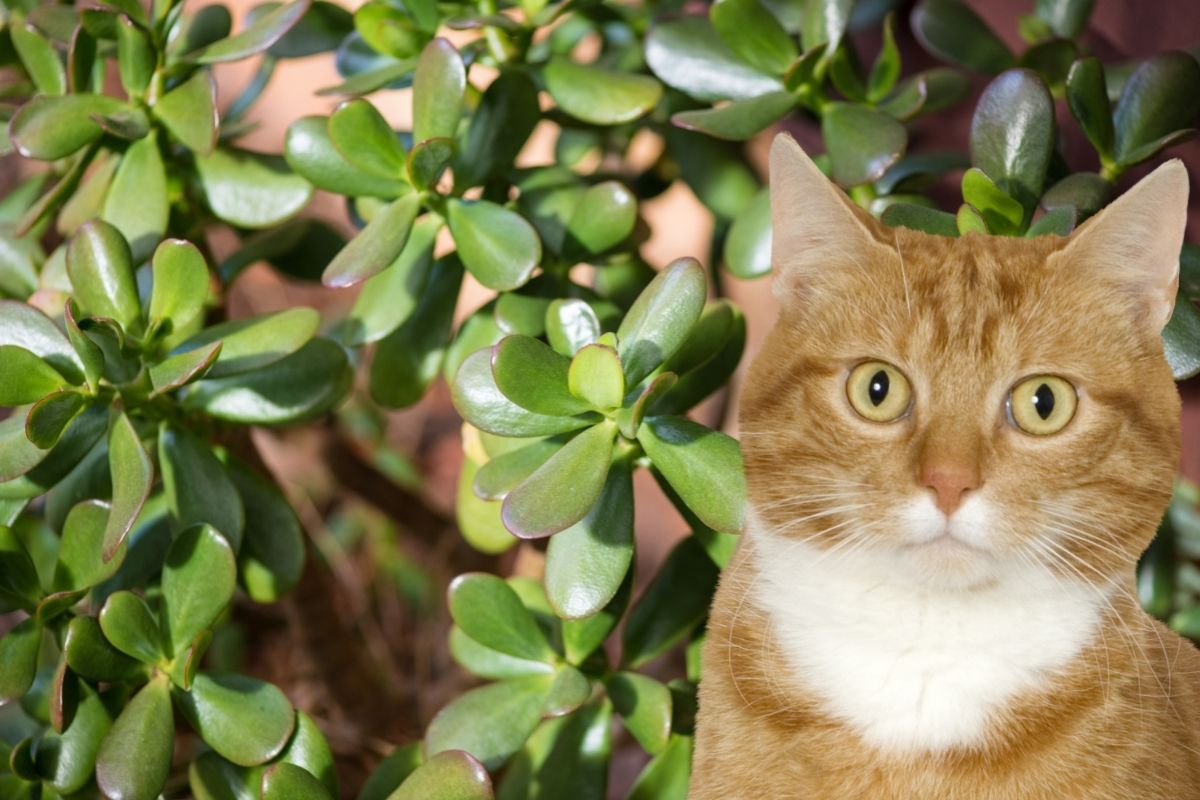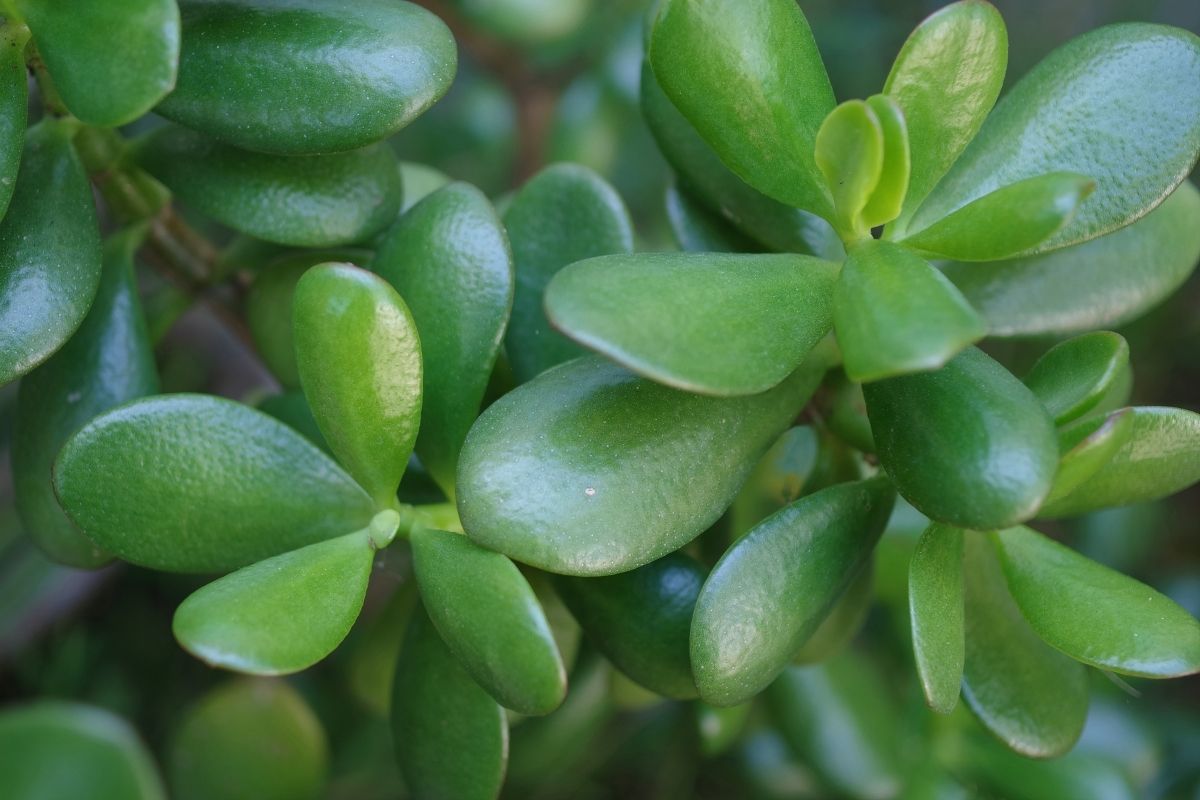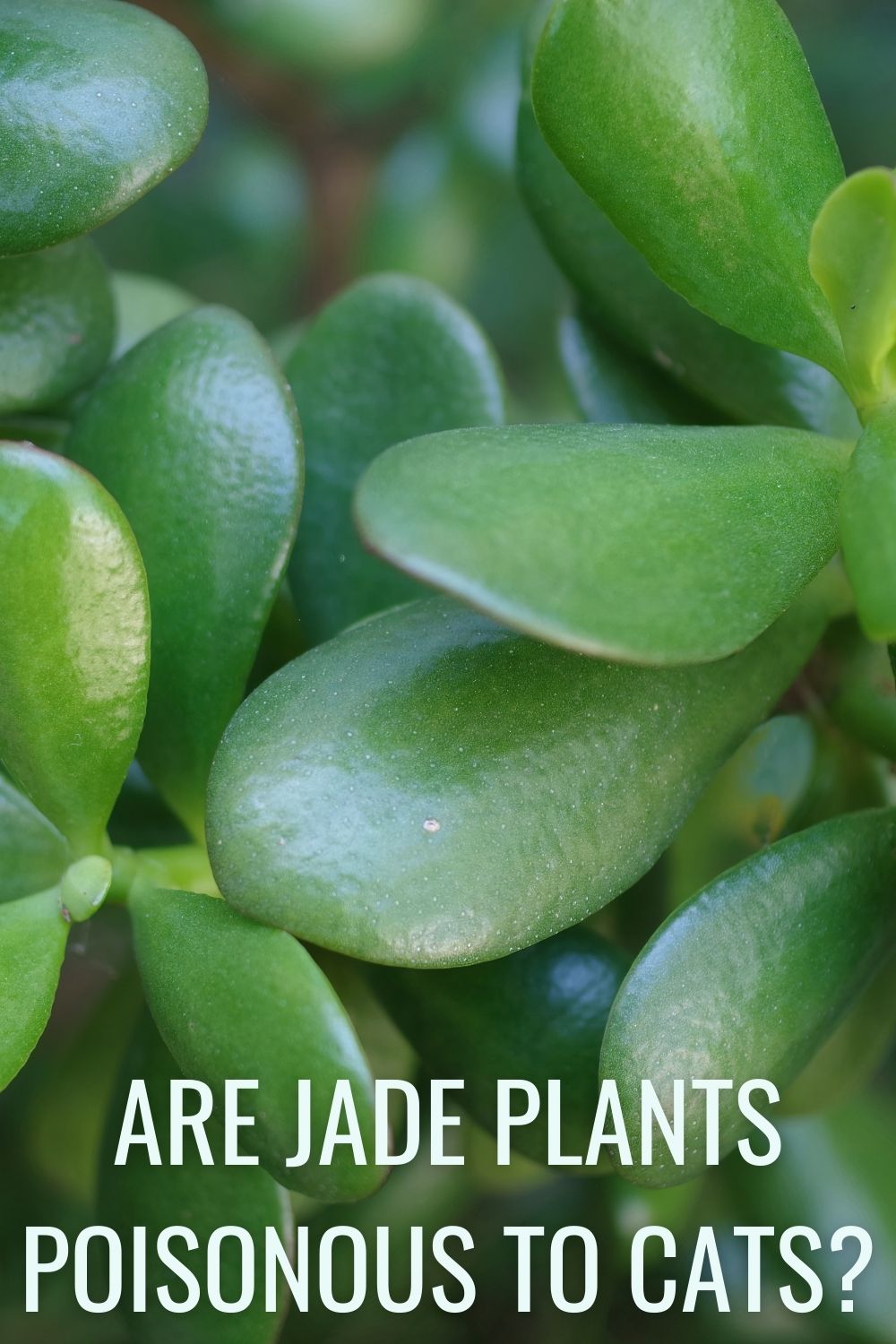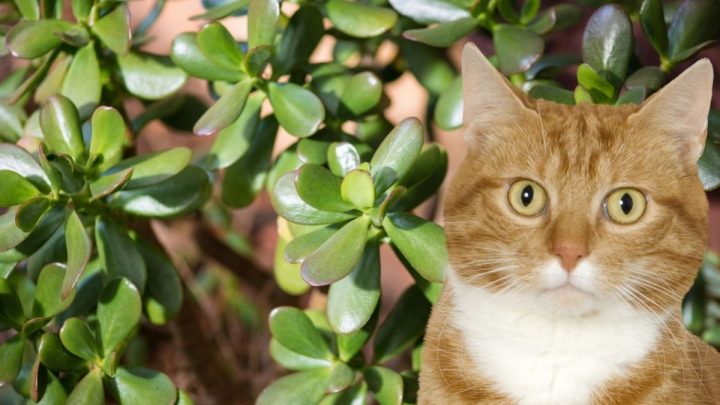If you are a cat owner, you know that it’s very important to make sure you keep your cat safe at all times. This means being aware of which plants are toxic to them, also. Are jade plants poisonous to cats? The answer is yes.
If you’re a cat owner, you’ve probably heard the age-old saying “curiosity killed the cat.” Well, that may be true for some things – but is a jade plant one of them? Let’s take a look at what jade plants are, whether or not they’re poisonous to cats, and what you can do to keep your feline friend safe.

Jade plants (Crassula ovata) are a type of succulents native to Africa and Asia. They’re popular houseplants due to their low maintenance requirements and tolerance for neglect. However, jade plants are also poisonous to cats – specifically, the leaves. If your cat nibbles on jade plant leaves, it may experience uncomfortable symptoms.
More plants that are poisonous to cats.
How to Identify Jade Plant

The jade plant is a beautiful, easy-to-care-for succulent that originates from South Africa. Though it’s often used as a houseplant, the jade plant can also be grown outdoors in USDA hardiness zones 10 and 11. If you’re thinking about adding a jade plant to your collection, here’s what you need to know about identifying this popular succulent.
The jade plant has thick, glossy leaves that are dark green in color. The leaves are oval-shaped and grow up to three inches long. The jade plant also produces small, white flowers that bloom in the springtime.
When grown outdoors, the jade plant can reach up to six feet tall. However, when grown indoors, it is typically much smaller. It’s usually sold as a common succulent, in small succulent pots.
Don’t feed me to your cat: a guide to poisonous houseplants by Judy Feldstein is a MUST HAVE if you have both houseplants and kitties
What is Jade Poisoning?
Jade poisoning is a condition caused by the consumption of jade plants. Symptoms include vomiting, diarrhea, and abdominal pain. In severe cases, jade poisoning can lead to death. Prompt treatment usually prevents this worst-case scenario.
Jade plants contain toxins that can be harmful to humans and animals. If consumed, jade plants can cause jade poisoning. If you suspect that your cat has eaten from your jade plant, seek medical attention immediately. Treatments for jade poisoning are available and effective. With prompt treatment, ingesting jade is usually not fatal.
Causes of jade poisoning in cats
Jade poisoning is always caused by cats eating the plant. They don’t have to swallow it to have a reaction. Even just chewing on the leaves can cause a reaction in some cats, although it’s typically not that serious if they don’t swallow it. They may only have oral irritation and similar symptoms.
However, it’s difficult to know for certain if your cat swallowed any so if you see them chewing or biting on the plant in any way, take precautions.
Diagnosing jade poisoning in cats
Your vet will be best equipped to diagnose jade poisoning in cats. They know how to look for clinical signs of toxicity that you may not know about.
Cats are very good at hiding their pain and discomfort. They will often act like everything is fine, even when it’s not.
Symptoms of jade poisoning
The jade plant, also known as the Crassula Ovata, is a popular houseplant that is unfortunately poisonous to cats. If your feline friend has been nibbling on your jade plant, there are a few symptoms you should look out for.
First, jade poisoning can cause gastrointestinal upset, including vomiting and diarrhea. You may also notice that your cat becomes lethargic and stops eating. Other symptoms might include:
- Loss of appetite
- Slow heart rate
- Skin irritation
- Upset stomach
- Drooling
In severe cases, ingesting jade can cause kidney failure. If you suspect that your cat has ingested jade, it is important to seek veterinary assistance immediately. With prompt treatment, most cats make a full recovery from jade poisoning.
Treatment of jade poisoning
Treatment will vary depending on the severity of the poisoning but may include gastric lavage, activated charcoal, and intravenous fluids. In severe cases, jade toxicity can be fatal. However, with prompt treatment, most cats make a full recovery.
How to Prevent Jade Toxicity in Cats
The easiest way to prevent poisoning is to keep the plants out of your home. That’s the only sure-fire way to be sure your cat won’t ingest any. Even if your cat has never tried to nibble on plants before, there’s no guarantee that he won’t one day.
Cats can be fickle animals and all it takes is one accident when you’re not home to cause a disaster. Keeping jade completely out of your house is the only way to be sure your cats don’t get it.
What to do if your cat chews on a jade plant
If you see your feline friend nibbling on some jade, don’t panic. The first thing you should do is get your cat away from the plant and make sure there are no pieces of it still in his mouth.
Then, you should call your vet or a pet poison control hotline right away for advice.
Are Jade Plants Poisonous to Cats – Conclusion
As you can see, jade plants are poisonous to cats. Some varieties are not as toxic as others, but any jade has the potential to make your cat sick. These popular plants are pretty but it’s safer to not bring them into your home at all if you have cats.
Many common houseplants like aloe plants, lucky plants (or lucky bamboo), and Chinese rubber plants can be toxic to your cat. There are also many common houseplants that are not toxic to cats. When in doubt, always do your research first. It’s our job as pet parents to keep our kitties safe.



